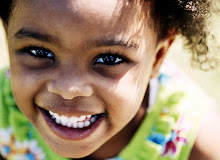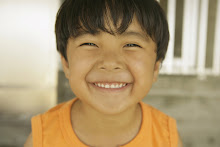
What has been the biggest, fastest expansion of public education in American history? Preschool. A new radio documentary by American Radio Works, Early Lessons, examines how early child care and education are changing public schools.
Starting with the Perry Preschool Project in the early 1960s researchers have begun to note how quality early learning can have a lasting impact on the lives of individuals and bring positive outcomes for society. Early Lessons describes how the Perry Preschool Project was conceived and the surprising outcomes from the study. It's fascinating to listen to the teachers from the Perry Preschool talk about how they developed their developmentally appropriate curriculum. They were focused both on giving the children the confidence and desire to learn as well as mastering skills that would help them improve their IQ scores, a measure that was believed to be crucial for a child's future success.
The results from the Perry Preschool study has also changed how we define the success of a program. The results from the project indicated that while the IQ score gains can "fade out" over time, the program participants benefited in other ways not measured by IQ - more likely to own a home, have a savings account, stay out of prison, have a higher paying job and more. These other benefits have an even greater impact on the community as a whole, beyond an individuals supposed IQ score, this is where the return on investment can be measured.
The Perry Preschool Project continues to be a cornerstone piece of research that influences public policy in Minnesota and around the nation.
The challenge is taking the good pieces of the Perry Preschool and replicating them in cost effective ways. Pieces like the quality of the program and the developmental appropriateness of the curriculum are more easily measured and can be replicated. The more challenging thing is to replicate the activities and lessons that gave the children the skills and motivation to continue to do well in school and later in life.
The results from the Perry Preschool study has also changed how we define the success of a program. The results from the project indicated that while the IQ score gains can "fade out" over time, the program participants benefited in other ways not measured by IQ - more likely to own a home, have a savings account, stay out of prison, have a higher paying job and more. These other benefits have an even greater impact on the community as a whole, beyond an individuals supposed IQ score, this is where the return on investment can be measured.
The Perry Preschool Project continues to be a cornerstone piece of research that influences public policy in Minnesota and around the nation.
The challenge is taking the good pieces of the Perry Preschool and replicating them in cost effective ways. Pieces like the quality of the program and the developmental appropriateness of the curriculum are more easily measured and can be replicated. The more challenging thing is to replicate the activities and lessons that gave the children the skills and motivation to continue to do well in school and later in life.
On the American Radio Works website you can listen to the documentary, download the audio or read the transcript.






